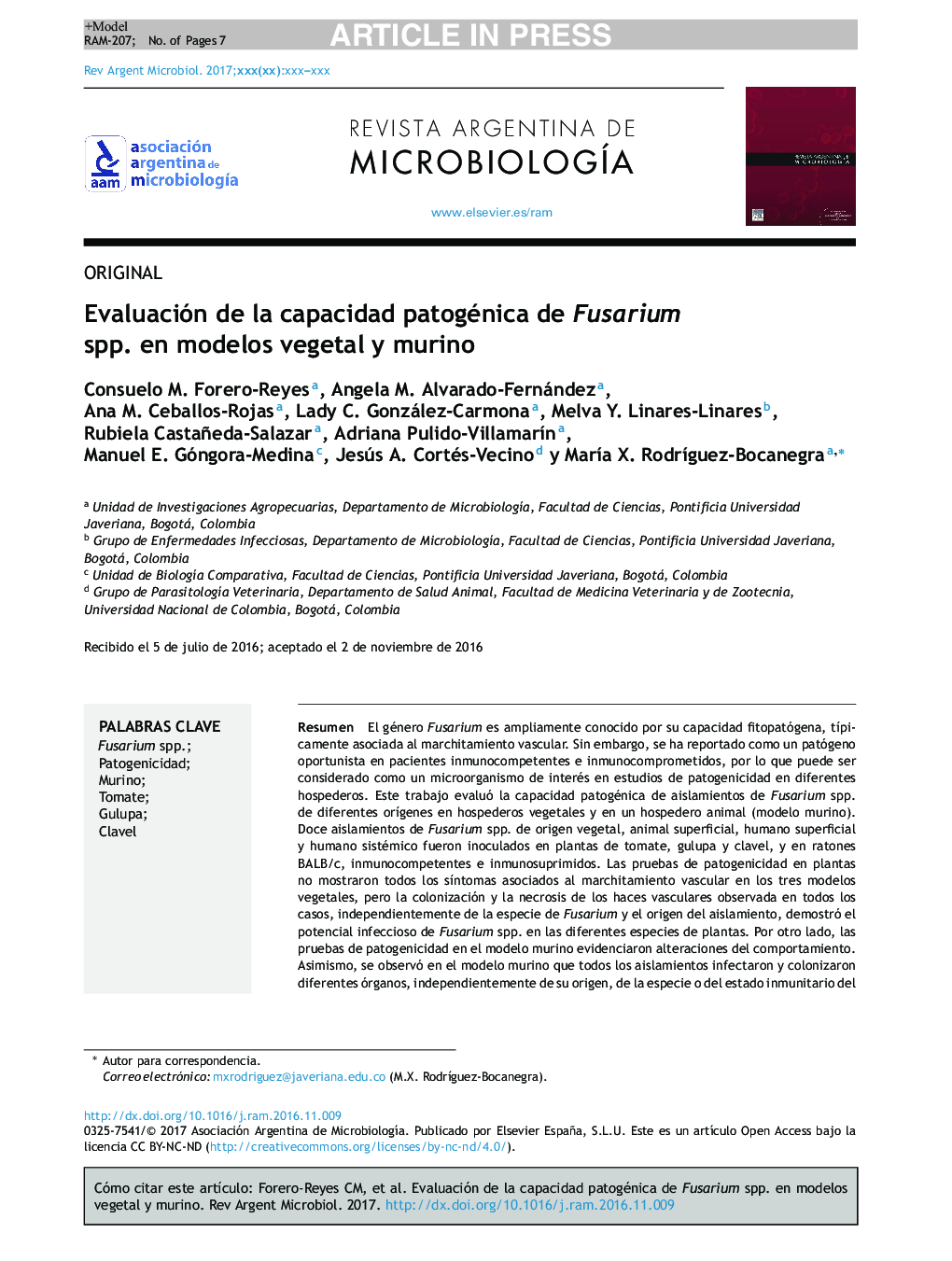| Article ID | Journal | Published Year | Pages | File Type |
|---|---|---|---|---|
| 8844423 | Revista Argentina de Microbiología | 2018 | 7 Pages |
Abstract
The genus Fusarium is widely recognized for its phytopathogenic capacity. However, it has been reported as an opportunistic pathogen in immunocompetent and immunocompromised patients. Thus, it can be considered a microorganism of interest in pathogenicity studies on different hosts. Therefore, this work evaluated the pathogenicity of Fusarium spp. isolates from different origins in plants and animals (murine hosts). Twelve isolates of Fusarium spp. from plants, animal superficial mycoses, and human superficial and systemic mycoses were inoculated in tomato, passion fruit and carnation plants, and in immunocompetent and immunosuppressed BALB/c mice. Pathogenicity tests in plants did not show all the symptoms associated with vascular wilt in the three plant models; however, colonization and necrosis of the vascular bundles, regardless of the species and origin of the isolates, showed the infective potential of Fusarium spp. in different plant species. Moreover, the pathogenicity tests in the murine model revealed behavioral changes. It was noteworthy that only five isolates (different origin and species) caused mortality. Additionally, it was observed that all isolates infected and colonized different organs, regardless of the species and origin of the isolates or host immune status. In contrast, the superficial inoculation test showed no evidence of epidermal injury or colonization. The observed results in plant and murine models suggest the pathogenic potential of Fusarium spp. isolates in different types of hosts. However, further studies on pathogenicity are needed to confirm the multihost capacity of this genus.
Related Topics
Life Sciences
Immunology and Microbiology
Microbiology
Authors
Consuelo M. Forero-Reyes, Angela M. Alvarado-Fernández, Ana M. Ceballos-Rojas, Lady C. González-Carmona, Melva Y. Linares-Linares, Rubiela Castañeda-Salazar, Adriana Pulido-VillamarÃn, Manuel E. Góngora-Medina, Jesús A. Cortés-Vecino,
